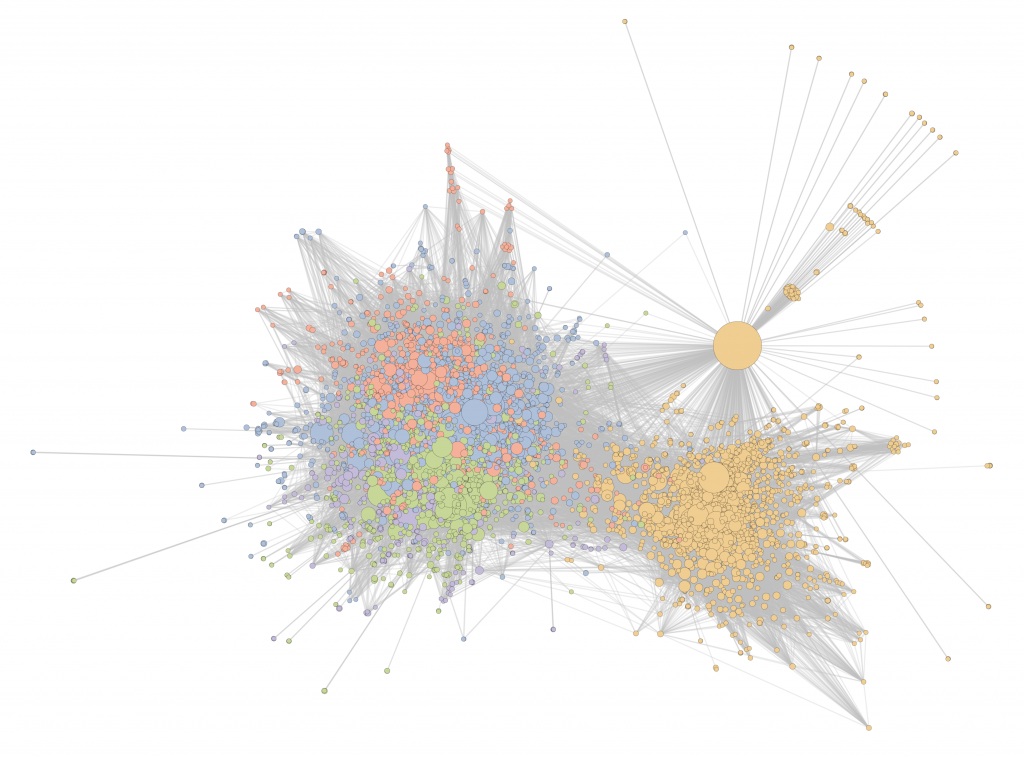Tristan, Iain and Hywel have recently published a paper exploring the information sharing ecosystem of climate change on Twitter. This work is available now in open access at PLOS ONE.
Exposure to media content is an important component of opinion formation around climate change. Online social media such as Twitter, the focus of this study, provide an avenue to study public engagement and digital media dissemination related to climate change. Sharing a link to an online article is an indicator of media engagement. Aggregated link-sharing forms a network structure which maps collective media engagement by the user population. Here we construct bipartite networks linking Twitter users to the web pages they shared, using a dataset of approximately 5.3 million English-language tweets by almost 2 million users during an eventful seven-week period centred on the announcement of the US withdrawal from the Paris Agreement on climate change. Community detection indicates that the observed information-sharing network can be partitioned into two weakly connected components, representing subsets of articles shared by a group of users. We characterise these partitions through analysis of web domains and text content from shared articles, finding them to be broadly described as a left-wing/environmentalist group and a right-wing/climate sceptic group. Correlation analysis shows a striking positive association between left/right political ideology and environmentalist/sceptic climate ideology respectively. Looking at information-sharing over time, there is considerable turnover in the engaged user population and the articles that are shared, but the web domain sources and polarised network structure are relatively persistent. This study provides evidence that online sharing of news media content related to climate change is both polarised and politicised, with implications for opinion dynamics and public debate around this important societal challenge.


